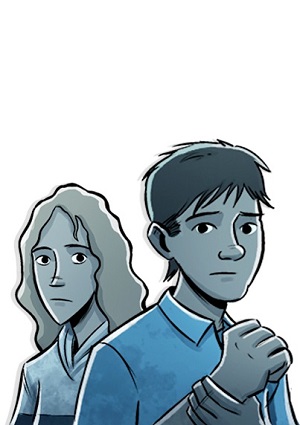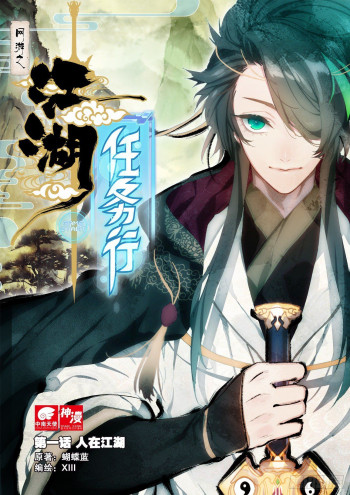Summary

His Playmate
by Ace Fawn
One mistake has twisted Diego Montosa’s world into darkness.
He kidnapped Wolf Lone’s only son, and the same thing has now happened to him.
Diego has been taken captive by an irresistible yakuza boss, broken down, and turned into his personal plaything …
Wolf is ruthless, subjecting his new pet to painful punishments and addictive pleasures. But Diego is a vicious young gang leader and will rebel at every chance he gets … even if it means sleeping with the enemy.
.
Read
His Playmate on http://kissnovel.net
Martial Peak Reviews
His Playmate by Ace Fawn is a gripping tale that delves into the dark and twisted world of power dynamics, captivity, and the complexities of human desire. The narrative centers around Diego Montosa, a young gang leader whose life takes a harrowing turn after he kidnaps the son of the ruthless yakuza boss, Wolf Lone. This act of desperation sets off a chain of events that leads to Diego's own abduction, plunging him into a world where he becomes the plaything of his captor, Wolf. The book is a raw exploration of the interplay between dominance and submission, love and hate, and the blurred lines that often exist between them.
The blurb succinctly captures the essence of the story, hinting at the intense psychological and physical battles that will unfold. Diego, initially portrayed as a fierce and rebellious character, finds himself at the mercy of Wolf, who is both a tormentor and a source of twisted pleasure. This duality in their relationship is one of the book's most compelling aspects. Fawn expertly crafts a narrative that keeps readers on edge, as Diego's defiance clashes with Wolf's ruthless methods of control.
One of the standout themes in His Playmate is the concept of power and its corrupting influence. Wolf Lone embodies the archetype of the powerful antagonist, a yakuza boss who wields his authority with an iron fist. His treatment of Diego oscillates between brutal punishment and seductive allure, creating a complex relationship that challenges traditional notions of captor and captive. Fawn does not shy away from depicting the darker aspects of this dynamic, and readers may find themselves grappling with their own moral compass as they witness Diego's struggle against his circumstances.
Character development is another area where Fawn excels. Diego is not merely a victim; he is a multifaceted character whose resilience and rebellious spirit shine through even in the darkest moments. His internal conflict is palpable as he navigates his feelings towards Wolf, a man who embodies both his captor and an unexpected source of desire. This tension is expertly portrayed, making Diego a relatable and sympathetic character despite his flaws. The evolution of his character—from a defiant gang leader to a man caught in a web of complex emotions—adds depth to the narrative.
Wolf, on the other hand, is a character that evokes a mix of admiration and revulsion. Fawn paints him as a formidable figure, yet there are glimpses of vulnerability that humanize him. The author skillfully reveals layers to Wolf's character, allowing readers to understand the motivations behind his actions. This complexity makes him more than just a one-dimensional villain; he becomes a tragic figure shaped by his own experiences and the brutal world he inhabits.
The pacing of the novel is another noteworthy aspect. Fawn strikes a balance between intense action and introspective moments, allowing readers to fully immerse themselves in the emotional landscape of the characters. The tension builds steadily, with each chapter revealing new layers to the relationship between Diego and Wolf. The author’s ability to maintain suspense while exploring the psychological intricacies of their bond is commendable.
Fawn's writing style is both evocative and visceral, drawing readers into the gritty world of organized crime and the emotional turmoil of its characters. The descriptions are vivid, painting a stark picture of the environments and situations that Diego and Wolf find themselves in. This attention to detail enhances the overall reading experience, making it easy for readers to visualize the scenes and feel the weight of the characters' struggles.
Comparatively, His Playmate shares thematic elements with other works in the dark romance genre, such as *Captive in the Dark* by C.J. Roberts or *The Dark Duet* series. However, Fawn's unique approach to character development and the exploration of power dynamics sets this book apart. While many dark romances focus heavily on the physical aspects of captivity, Fawn delves deeper into the psychological implications, making the story resonate on a more profound level.
The impact of His Playmate extends beyond mere entertainment; it challenges readers to confront uncomfortable truths about desire, power, and the human condition. The moral ambiguity of the characters forces readers to question their own beliefs about love and loyalty. Fawn does not provide easy answers, leaving readers to grapple with the complexities of the characters' choices long after the final page is turned.
In conclusion, Ace Fawn's His Playmate is a masterfully crafted narrative that explores the dark corners of human relationships through the lens of captivity and desire. With its rich character development, intricate themes, and compelling writing, this book is sure to leave a lasting impression on readers. It is a bold and provocative read that will appeal to fans of dark romance and psychological thrillers alike. For those willing to venture into the depths of this tumultuous relationship, His Playmate promises an unforgettable journey.








![Meet Me Today [ Tia ]](/upload/pic/manga/meet-me-today---tia--.jpg)














Reviews 0
Post a Reviews: